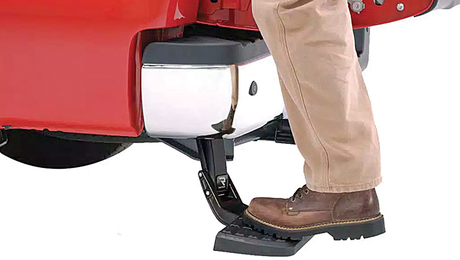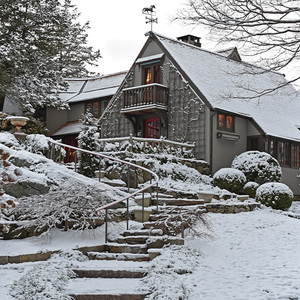I’m sure someone out there can explain this. There are currently (2) 1500-watt electric oil-filled radiators heating a space. The plan is to replace with an 85% efficient sealed-combustion propane heating stove. How many BTUs should the stove be if the desired heating capacity is equal to the two electric rads?
Discussion Forum
Discussion Forum
Up Next
Video Shorts
Featured Story

The RealTruck AMP Research Bedsteps give you easy access to your truck-bed storage.
Highlights
"I have learned so much thanks to the searchable articles on the FHB website. I can confidently say that I expect to be a life-long subscriber." - M.K.














Replies
1 KW = 3412 BTU
You are hereby crowned the new heating guru. So, if I want 3KW equivalent then I need (3412 x 3) / .85, assuming that the BTU rating of the stove is input, not output. Sounds like 12042 BTU.
>>ou are hereby crowned the new heating guru.Not even close compared to guys like Tim.I do know some stuff, but just within a narrow range, and I had a conversion chart on my desk when I read the question.
View Image
Sojourners: Christians for Justice and Peace
Not correct. It is not true that 1 KW = 3412 BTU. British Thermal Units is an amount of energy and kilowatts is a rate of transfer of energy. What you said is analogous to saying that 10 miles per hour = 52,800 feet. It doesn't make sense.
One kilowatt is equal to 3412 BTU per hour.
The correct abbreviation for kilowatts is kW, not KW.
Good points
View Image
Sojourners: Christians for Justice and Peace
Actually, isn't it that 1 kW-hr = 3413 BTUs (mean)<G>, 3412 BTUs only at 60F?
If one wants precision, then
1 BTU (mean) per second = 1054.8 watts
1 BTU/sec @ 39F = 1060.4 watts
1 BTU/sec @ 60F = 1054.6 watts = 704,946.52 lumens
1 Cehval-vapeur = 736 watts
No, the temperature does not matter. A BTU is a specific amount of energy and is not dependent on temperature. A kilowatt hour is a specific amount of energy and is not dependent on temperature.
Temperature does not affect the quantity of energy that is a BTU. However, the BTU is defined as the amount of energy required to raise the temperature of 1 pound of water, 1 degree farenheit at 60 degF. The temperature of the water is critical to the definition of the quantity, because a pound of water at 100 degF has a different quality, in terms of specific heat, than it does at 60 degF.
A few years back some interantional committe standardized the BTU to the second definition below. The first web ref shows the variable BTU definitions. I do not recall what comittee or when the BTU was 'standardized'..
BTW, did you know that one state legislature (forget which and when, somebody will tell us) tried to legislate the value of pi to 22/7 at one time??
My orig. post was straight out of my older CRC handbook, also, refer to
http://www.ex.ac.uk/cimt/dictunit/dictunit.htm#energy
and,
<!----><!----> <!---->
http://www.nicorinc.com/en_us/news_and_media/glossary/default.htm#B
British Thermal Unit (Btu) The quantity of heat necessary to raise the temperature of one pound of water one degree Fahrenheit from 58.5 to 59.5 degrees Fahrenheit under standard pressure of 30 inches of mercury at or near its point of maximum density. One Btu equals 252 calories, (gram), 778 foot-pounds, 1,055 joules or 0.293 watt hours.<!----><!---->
I'm not an HVAC guy, but had a thought anyway.
Wouldn't it make more sense to do heat loss calc and figure out what was needed? The existing heaters may havebeen over/undersized. So matching them might no be a good idea.
"Wouldn't it make more sense to do heat loss calc and figure out what was needed?"
Absolutely.
For fun with the math: http://www.infinitepower.org/calc_watts.htm